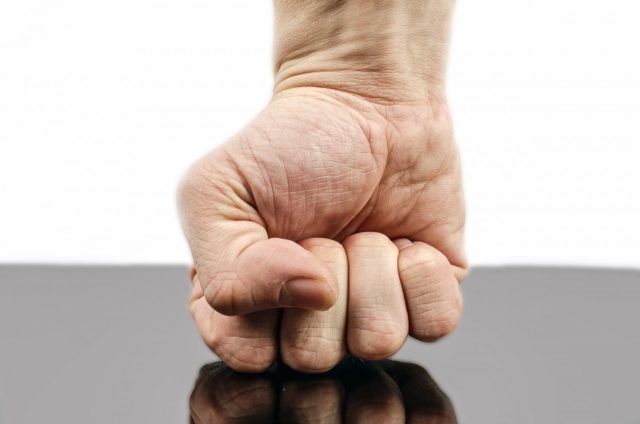
The European Union’s more intense efforts than ever to ease tensions between Serbia and Kosovo seem to be backfiring. Brussels’ ultimatum to Belgrade and Pristina in January has further emboldened both sides, who seem unable to find common ground. The Kosovar government’s decision to ban the circulation of the Serbian dinar in the northern region, which is home to a significant Serb community, from the 1st of February has brought them out into the streets. The Serb protests in Mitrovica come in the wake of last summer’s incidents when Serbs sabotaged Pristina’s elections just days after the announcement of an EU-mediated agreement between Kosovo and Serbia. Despite threats to withdraw military and economic support, neither side has given any indication that it would agree to negotiate a much-needed compromise solution as both countries seek EU membership. Beyond the concerns that these new tensions, which are reigniting between the two Western Balkan countries, raise for Europe, the EU’s rush to “normalise” the situation of the self-declared independent province, not yet recognised by all Member States, could also be interpreted in the context of the Russian-Ukrainian war and its long-awaited end. First, Belgrade’s traditional relationship with Moscow has not cooled much since the start of the war, despite official statements by the Serbian authorities supporting the West’s position. It is also undesirable for the precedent of Kosovo to be invoked by Russia, which is one of the arguments used by Romania not to recognise the independence of this former Serbian province. The EU has already opened accession negotiations with Serbia and has signed an association agreement with Kosovo, but it cannot complete these steps, partly because of the instability that the relationship between the two states is creating in the Western Balkans, and partly because there are still Member States that are not giving up their position on non-recognition of the former Serbian province.
By March Kosovo and Serbia must agree to plan to normalise relations
Under the EU’s ultimatum, Kosovo and Serbia must decide by March whether to accept the international – EU and US – plan to normalise relations between them. If they fail to reach an agreement, they will face penalties in terms of both investment and Western economic and political support. And the message, delivered by EU commissioner Miroslav Lajcak, was very clear: the side unwilling to take steps towards “reconciliation” will be penalised more.
“By March we will know if we are making progress or not, and if we are not, we will know why, who is responsible for it,” the commissioner said.
Serbia, which has already received hundreds of millions of euros and in the last decade has opened only 22 of the 35 accession chapters, has much to lose. But so does Kosovo, whose citizens can move freely – without visas and passports – within the Schengen area from the 1st of January. Moreover, both have benefited from Western investment – without, in Serbia’s case, having to give up its traditional relationship with Moscow or its more recent privileged relationship with China. Moreover, the presence of NATO forces in the region was and is a guarantee that no tension will escalate, as it did during the 1998-1999 war, and it has no such agreement with the European Economic and Monetary Union. In addition, the Kosovar government has motivated its decision by a desire to curb cash receipts, which are conducive to money laundering. The Serbian dinar still circulates only in the northern part of the province, where it is used to pay pensions, allowances and salaries of Serbs working in parallel Serbian state institutions in Kosovo.
Serbian President Aleksandar Vucic has announced that he has already had meetings with Western leaders who support Kosovo – the US, UK, France, Germany and Italy – and that they understand the effects of the Pristina government’s “criminal decision” to stop financial transactions with Serbia.
Moreover, Vucic announced that he would ask the NATO Security Council to discuss the issue. The Serbian politician, who invoked “respect for the rules of public international law and the UN Charter”, stressed that today everyone understands that Pristina is the only one who wants chaos.
“I think there is a huge distrust of Pristina and its actions. I think everyone understands today how much I was right when I said that only one side wants to unleash chaos, generate provocations and escalate the situation in the southern Serbian province,” Vucic said.
After the recent street protests, Kosovar Prime Minister Alvin Kurti announced he would allow a one-month transition period for the Serb population to adjust to the new measure. According to Belgrade, the measure would affect about 100,000 people.
Tensions between Pristina and Belgrade have been building for months, and the EU seems unable to mediate a conflict. At the end of May last year, NATO peacekeepers were forced to intervene in the conflict in the northern province of Kosovo, which resulted in several injuries. The Kosovo side is accused of abuses over the recent arrest of Serbs, who are themselves suspected of violent crimes. Since then, Brussels has been trying to put an 11-point agreement, discussed since autumn 2022, back on the negotiating table last year. But without success.

Essentially, this agreement would not require Serbia to explicitly recognise Kosovo’s independence, only not to oppose its attempts to join various international organisations. Which would be somewhat acceptable to the Serbian side. But Pristina – and specifically the current prime minister, Albin Kurti – does not want to accept, as Western diplomats propose, the creation of autonomous Serb minority localities and an association of Serbs. Kurti has labelled this point – accepted in 2013 by his predecessor in law – as the creation of a state-in-state.
“For us, any agreement that does not have mutual recognition at its core is definitely not a full normalisation agreement,” Albin Kurti said.
Kosovo unilaterally declared independence in 2008. Since then, almost 100 countries have recognised its independence, including the vast majority of EU countries. Five countries – Cyprus, Greece, Spain, Slovakia and Romania – still do not recognise the self-proclaimed state of Kosovo. Serbia obviously does not recognise the Pristina regime either. The five EU Member States that have not recognised Kosovo’s independence have a track record of self-determination efforts supported by certain minorities on their territory, which has put them in delicate positions. But for Romania, the central argument has been Transnistria, as two of the foreign ministers who have been behind the documents adopted by Romania on Kosovo have explained over the years.
“The President’s policy was supported by the arguments provided by the Foreign Office and, fortunately, it followed the Foreign Office’s recommendations. If you recognise Kosovo, why are you against Transnistria, because Transnistria is also separatist? These were our calculations at that time, in 2008”, says Adrian Cioroianu, quoted by Europa Libera.
“There was always the possibility that Russia would raise this issue, especially in relation to Romania and Romania’s interest in the integrity of the Republic of Moldova, in the conditions of a reversal on the non-recognition of Kosovo,” explained Cristian Diaconescu, former foreign minister in 2009 and 2012.
According to him, Romania’s position was justified, as demonstrated by the evolution of subsequent events, from the conflict in Georgia, which ended with the annexation of South Ossetia and Abkhazia, to that in Crimea in 2014 and the more recent annexation of four other provinces in Ukraine.
“Let’s not forget that when Russia annexed Crimea, it invoked the Kosovo argument,” said Cristian Diaconescu.



 Subscribe
Subscribe